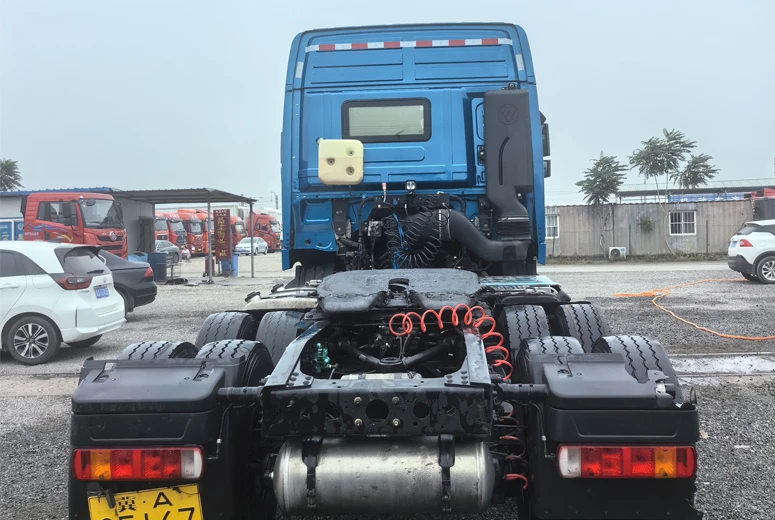asphalt mixers
The Importance of Asphalt Mixers in Construction
Asphalt mixers play a crucial role in the construction and maintenance of roads, highways, and various infrastructure projects. These machines are designed to blend various components of asphalt, ensuring that the final product meets specific quality standards for durability and performance. Understanding the importance of asphalt mixers can significantly enhance our appreciation of modern construction techniques and their impact on society.
What is Asphalt?
Asphalt, also known as bitumen, is a sticky, black substance derived from crude oil. It is a fundamental material in road construction, as it provides a smooth and durable surface. Asphalt is typically mixed with aggregates, such as gravel and sand, as well as additives that enhance its properties. The mixing process is crucial, as it determines the uniformity and performance of the asphalt when it is laid on roads.
The Function of Asphalt Mixers
Asphalt mixers can be categorized into two main types batch mixers and continuous mixers. Batch mixers produce asphalt in discrete batches, allowing for precise control over the mixing process. This type is often used in smaller projects or when different asphalt formulations are required. In contrast, continuous mixers operate in a steady flow, making them suitable for large-scale construction projects where efficiency is paramount.
The role of the asphalt mixer is to ensure that all components are evenly blended. This uniformity is vital for the asphalt to achieve optimal performance, as inconsistencies can lead to premature wear, cracking, or other issues. Advanced asphalt mixers are equipped with technology that monitors temperature, mixing speed, and other parameters to achieve the best results.
Innovations in Asphalt Mixing Technology
asphalt mixers

Recent advancements in asphalt mixing technology have transformed the industry. The introduction of environmentally friendly practices is one of the most significant shifts. For instance, warm mix asphalt (WMA) technology allows for the production of asphalt at lower temperatures, reducing energy consumption and emissions. This not only benefits the environment but also contributes to the longevity of both the asphalt and the equipment used in its production.
Furthermore, many modern asphalt mixers are designed to allow for the recycling of old asphalt, known as Reclaimed Asphalt Pavement (RAP). This practice not only conserves natural resources but also reduces waste and lowers costs for construction projects. The ability to seamlessly integrate RAP into new asphalt mixes demonstrates the industry's commitment to sustainability and innovation.
The Impact on Infrastructure
The significance of asphalt mixers extends beyond the construction site. Well-constructed roads and highways are essential for economic growth, as they facilitate the movement of goods and people. Quality asphalt is pivotal to ensuring safety and efficiency in transportation networks. Asphalt mixers, by producing high-quality asphalt, directly contribute to the durability and longevity of these infrastructures.
Moreover, the use of advanced mixing technologies enhances the performance characteristics of the asphalt, making roads more resistant to weather conditions, traffic loads, and other stresses. This results in fewer repairs and lower maintenance costs, ultimately benefiting both taxpayers and the economy.
Conclusion
In conclusion, asphalt mixers are an indispensable part of the construction industry, contributing significantly to the quality and durability of roads and infrastructure. With ongoing innovations in technology, these machines are becoming more efficient and environmentally friendly, aligning with modern sustainability goals. As we continue to develop our infrastructure, the importance of reliable asphalt mixers cannot be overstated, as they are fundamental to creating safe and lasting roadways that serve communities effectively. With the right technology and practices, the future of road construction looks promising, paving the way for a more efficient and sustainable transportation network.
-
2016 BORGWARD SUV: AI-Enhanced Luxury & PerformanceNewsAug.02,2025
-
FOTON AUMAN GTL-E 8X4 Dump Truck: Durable Heavy Duty HaulerNewsAug.01,2025
-
2BFY Traction Series Grain Fertilizer Seeder - Chenyang GroupNewsAug.01,2025
-
2BFY Traction Series Grain Fertilizer Seeder - Chenyang Group|Integrated Seeding&FertilizingNewsAug.01,2025
-
2BFY Traction Series Grain Fertilizer Seeder-Chenyang GroupNewsJul.31,2025
-
2BFY Traction Series Grain Fertilizer Seeder-Chenyang Group|Integrated Seeding,FertilizingNewsJul.31,2025
Popular products

























